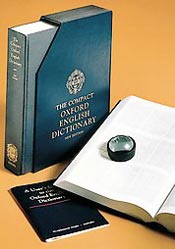Do you know when it's appropriate to use the word "nauseous" and when to use "nauseated"? I hear people say sentences like, "Whoo, I'm nauseous" so often, my knee-jerk response is to say that that's correct.
But every once in a while I run across somebody who says rather peevishly that you're not supposed to say you're "nauseous," dummy, you're supposed to say you're "nauseated." But I usually forget this and "nauseous" is what most often slips out -- no pun intended.
Maybe it's because I don't know why you're supposed to say "nauseated" instead. So I decided to look it up.
Well. Surprise, surprise. Get ready for a little etymology whiplash. I'll try to keep the nausea to a minimum.

Nausea = seasickness
(Photo from British Columbia Coast of Canada Weather)

This little girl is rejecting broccoli with a feeling of loathing. Which means she is nauseating.
(Image from being anonymous)

That's one nauseous roller coaster.
(Photo from Livestrong.com)
P.S. In case you can't tell, I love the Oxford English Dictionary.

Sources
Oxford English Dictionary, nausea, nauseate, nauseating, nauseous
Online Etymology Dictionary, nauseate and nauseous
American Heritage Dictionary of the English Language, nauseous
Words Between the Spaces, Nauseous vs. Nauseated, August 8, 2010
Phrogz, Nauseous vs. Nauseated
eHow, How to Use Nauseated and Nauseous Correctly
Grammar Girl, A Few Short Questions, October 26, 2007
But every once in a while I run across somebody who says rather peevishly that you're not supposed to say you're "nauseous," dummy, you're supposed to say you're "nauseated." But I usually forget this and "nauseous" is what most often slips out -- no pun intended.
Maybe it's because I don't know why you're supposed to say "nauseated" instead. So I decided to look it up.
Well. Surprise, surprise. Get ready for a little etymology whiplash. I'll try to keep the nausea to a minimum.

Nausea = seasickness
(Photo from British Columbia Coast of Canada Weather)
- First of all, all those "nausea" words originally come from a very similar Latin root word which means "sea sick." That seemed pretty obvious once I read it, but I doubt that would have occurred to me.
- Now, as far as the difference between "nauseated" and "nauseous" goes, let's start with the fact that they're two different parts of speech.
- "Nauseated" is actually a form of a verb. So let's look at what "nauseate" means.
- The very first definition, according to my OED, is "to reject (food, etc.) with loathing or a feeling of nausea."

This little girl is rejecting broccoli with a feeling of loathing. Which means she is nauseating.
(Image from being anonymous)
- That's right. When you say, "Ugh, Lady Gaga is nauseating," technically what you're saying is that Lady Gaga is sticking out her tongue in disgust and pushing away a plate of food.
- If what you really mean is that you are sickened by Lady Gaga, technically what you should say is "Lady Gaga is nauseous." Because "nauseous" is an adjective, meaning "causing nausea or sickening."
- How to remember the difference? Things that make you sick are nauseous. Roller coasters are nauseous. Ships on rolling waves are nauseous. This very entry may be nauseous. Or else just remember that what is correct is the opposite of the way you would normally say it.

That's one nauseous roller coaster.
(Photo from Livestrong.com)
- So how come nearly all of us commonly say it the other way around than you're supposed to?
- I think because another definition of the verb "nauseate" shows up farther down the list. This definitions uses another form of the verb, "nauseated" (intransitive) to mean something that can be done to you: "to become affected with nausea, to feel sick."
- I think, too, that we've heard the words used incorrectly enough times that what was originally incorrect now sounds correct. In fact, Merriam-Webster has taken to saying that because of the current, more pervasive usage, it may actually be correct to say "I feel nauseous" when you're sickened by something, instead of "I feel nauseated."
- Still, some grammar purists persist, proclaiming that just because everybody says it, doesn't make it right. I'll give you one example of one person's protest against this tendency to alter definitions apparently willy nilly:
When a word is used incorrectly often enough, rather than teach proper usage, we simply succumb to the uneducated masses and go along with it--just like our pitiful public school system. The same can be said for Merriam-Webster, et al[.] that rush to legitimize any popular or cannibalized words or phrases. Those who should know better but can't admit they are wrong are, in fact, the biggest problem. THE MEDIA! People who don't even know how to properly consult a dictionary for pronunciation are changing our language! --Anonymous
- Well, I don't like to admit this, Anonymous, but what you've described is kind of how grammar works. We collectively decide what the rules are, and if enough of us change our minds over time, that's what the rule becomes.
- Here's a case in point, Anonymous: once upon a time it used to be correct to say "I feel nauseous."
- That's right, ladies and gentlemen, the first definition my OED offers for "nauseous" is "inclined to nausea; fastidious." Meaning, a person can, in fact, be nauseous.
- This definition is marked obsolete. Which means this is how people used to use the word. It means that, once upon a time the majority of people agreed that it was correct to say "I feel nauseous," and then over time, the next majority decided, nah, "I feel nauseated" is correct. So now apparently, we're swinging back to prefer the original.
- Proof, ladies and gentlemen: grammar evolves. Even your own Apple Lady doesn't like to admit this, but it's true.
- So if you really want to stick it to some grammar purist when he or she tries to correct you for your usage of "nauseous," you can answer back that you're simply using the original definition, and that if he or she has a problem with it, go look it up.
P.S. In case you can't tell, I love the Oxford English Dictionary.

Sources
Oxford English Dictionary, nausea, nauseate, nauseating, nauseous
Online Etymology Dictionary, nauseate and nauseous
American Heritage Dictionary of the English Language, nauseous
Words Between the Spaces, Nauseous vs. Nauseated, August 8, 2010
Phrogz, Nauseous vs. Nauseated
eHow, How to Use Nauseated and Nauseous Correctly
Grammar Girl, A Few Short Questions, October 26, 2007
I used to be one of those snarky correctors, but now I just keep my mouth shut and when somebody uses the proper term, appropriately, I kiss them. Talk about nauseating!
ReplyDeleteSpeaking of the OED, I heard it's going out of print! The publisher said more people are using their online product, so they may not print on paper anymore. Makes me kinda sad.
ReplyDeleteEgads! I looked it up (of course; what else would I do?) and you're right. They're probably not going to print the third edition, but will make it available online. Here's another interesting tidbit: the OED has never made a profit.
ReplyDeletehttp://www.telegraph.co.uk/culture/books/booknews/7970391/Oxford-English-Dictionary-will-not-be-printed-again.html
The Anonymous grammar purist split his infinitive...
ReplyDelete"to properly consult"
Oops.
Split infinitives are allowed, even grammatically speaking, as the emphasis is being made to fit where the writer intends it to be. So Star Trek wasn't wrong "to boldly go" when the adverb seems "to strongly lend" itself to the spot it's in.
DeleteOxford Dictionary has a lot of vocabulary !
ReplyDelete